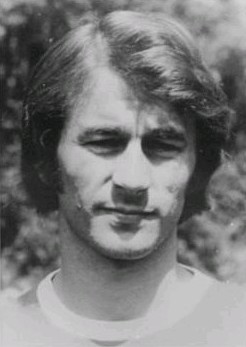
The Singapore national football team represents Singapore in the senior men's international football. It is organised by the Football Association of Singapore (FAS), the governing body of football in Singapore, which is affiliated with the Asian Football Confederation (AFC) and the regional ASEAN Football Federation (AFF). The team's colours are red and white. Singapore are colloquially known as "The Lions".

Perth Glory Football Club is an Australian professional soccer club based in Perth, Western Australia. It competes in the country's premier men's competition, A-League Men, under licence from Australian Professional Leagues.

FC Carl Zeiss Jena is a German football club based in Jena, Thuringia. Founded in 1903 it was initially associated with the company Carl Zeiss. From the 1960s to the 1980s it was one of the top-ranked clubs in East Germany, won the DDR-Oberliga and the FDGB-Pokal three times each and reached the 1981 European Cup Winners' Cup Final. Since the German reunification in 1990, the club has competed no higher than the second tier. Since the 2021–22 season, Jena is playing in the Regionalliga Nordost.
Valdas Ivanauskas is a Lithuanian professional football manager and former player who played as a striker.

Varadaraju Sundramoorthy is a former Singaporean international footballer who played in the 1980s and 1990s, is widely touted as one of the country's most skillful and talented footballers ever. He is the current technical director of the Laos national football team.

Bernd Schneider is a German former professional footballer. He was mainly a midfielder but could play anywhere on the left and right flanks. After retiring in June 2009, he took up an advisory role at his first club, Carl Zeiss Jena, and a scouting position at Bayer Leverkusen.

Jürgen Raab is a German football coach and former player. A midfielder, he spent his entire club career with DDR-Oberliga club Carl Zeiss Jena. At international level, he made 20 appearances or the East Germany scoring twice.

Hans Meyer is a German former professional football player and manager.

Harald Irmscher is a former German football player.
The 1973–74 DDR-Oberliga was the 25th season of the DDR-Oberliga, the first tier of league football in East Germany.
The 1965–66 DDR-Oberliga was the 17th season of the DDR-Oberliga, the first tier of league football in East Germany.
The 1970–71 DDR-Oberliga was the 22nd season of the DDR-Oberliga, the first tier of league football in East Germany.
The 1979–80 DDR-Oberliga was the 31st season of the DDR-Oberliga, the first tier of league football in East Germany.
The 1981–82 DDR-Oberliga was the 33rd season of the DDR-Oberliga, the first tier of league football in East Germany.
Football club was a designation for a specially promoted club for elite football in East Germany. The football clubs were formed in 1965 and 1966 as centers of excellence in East German football. The football clubs enjoyed considerable advantages over other sports communities in East German football in terms of material conditions and talent recruitment. All designated football clubs had their own catchment areas and promising players were ordered to play for them. In addition to the ten designated football clubs, sports community SG Dynamo Dresden was also promoted in a similar way to the designated football clubs from 1968.
Frank Neubarth is a German football manager and former player who spent his whole career with SV Werder Bremen and has since managed FC Schalke 04, Holstein Kiel and FC Carl Zeiss Jena.

Jürgen Piepenburg is a former German footballer who played in the DDR-Oberliga as a forward.

Lutz Lindemann is a German professional football coach and former player. In the top division of East German football, the DDR-Oberliga, he played for FC Rot-Weiß Erfurt and FC Carl Zeiss Jena. After his football career, the former GDR international was, among other things, a coach at FC Erzgebirge Aue and club president at FC Carl Zeiss Jena.
The 2013 season is the 61st season of competitive football in Singapore.
The history of BFC Dynamo began with the founding of the sports club Dynamo Berlin in 1954. SC Dynamo Berlin entered the 1954–55 DDR-Oberliga after taking over the first team of SG Dynamo Dresden and its place in the league. The relocation was designed to provide the East German capital with a competitive team that could rival the teams from West Berlin. Prominent players in the team were Günter Schröter, Johannes Matzen, and Herbert Schoen. Dynamo Berlin captured its first trophy in the 1959 FDGB-Pokal. The team then finished the 1960 DDR-Oberliga as runner-up. However, the team was relatively weak in the 1960s and was overshadowed in the capital by ASK Vorwärts Berlin.










